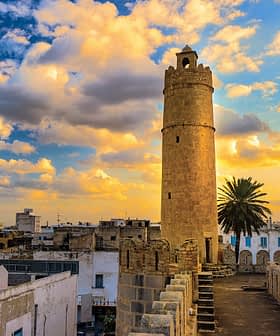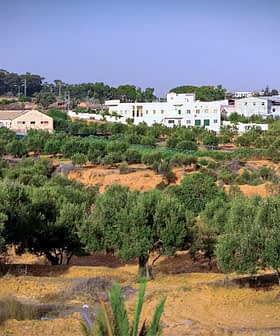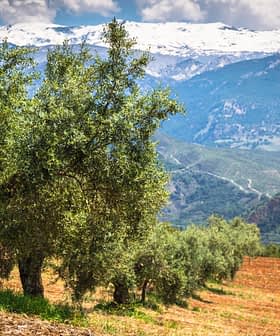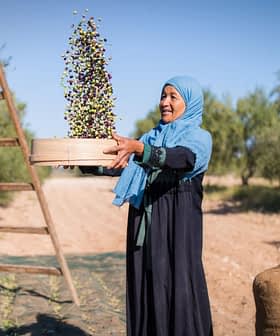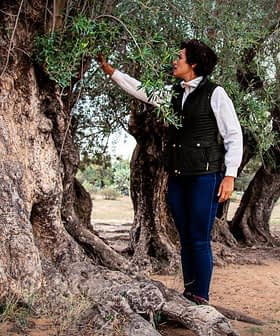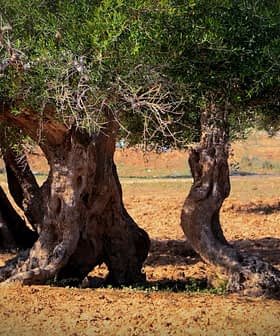Gold for Tunisia Heralds Start of New Beginning
Karim Fitouri of Olivko says his Gold Award at NYIOOC marks the beginning of Tunisia's transformation from a bulk producer for the export market to a country known for its high-quality olive oil.
 Karim Fitouri claimed a Gold Award at the 2017 NYIOOC for his Chetoui monovarietal.
Karim Fitouri claimed a Gold Award at the 2017 NYIOOC for his Chetoui monovarietal.The 2017 New York International Olive Oil Competition awarded Italy 123 awards and Spain 110, but Tunisia received its first Gold Awards for Olivko and Zeet, leading to a sense of pride and recognition among Tunisian olive oil producers. Olivko, made with the Chetoui olive variety in the Dougga valley, represents Tunisia’s potential to transition from bulk exporting to high-quality olive oil production, with owner Karim Fitouri emphasizing the need for education, investment, and support to achieve this goal.
Winning entries at the 2017 New York International Olive Oil Competition (NYIOOC) included exceptional olive oils from 20 countries, with Italy topping the list with 123 awards, followed by Spain not far behind with 110. But national pride is probably highest in Tunisia for its first Gold Awards at NYIOOC: one for Olivko, and another for Zeet.
What matters to me the most is the reaction of pride and warmth from ordinary people I meet, including the workers on our grove.
Olivko’s owner and founder, Karim Fitouri, was in New York to receive the award in person. He told Olive Oil Times how news of the win has been received in Tunisia:
See Also:The World’s Best Olive Oils
“We’ve had congratulations from fellow producers, from the authorities, the olive oil industry, and of course the press, which has reported extensively on the news of the award. The thing however that matters to me the most is the reaction of pride and warmth from ordinary people I meet, including the workers on our grove. This award has made them feel like their hard work and the tradition have finally been recognized and rewarded, and this will act as a motivator for even better results in the future.”

The Tunisian Ambassador to the U.K., Nabil Ammar, congratulates Fitouri
Gold-winning Olivko is organically produced and made with a Tunisian olive variety called Chetoui, one of two major varieties produced in the north of the country. Fitouri’s farm is in the lush Dougga valley in the Beja region, which happens to be an archaeological site with UNESCO World Heritage status. Dougga is the site of the ruins of an ancient Roman city overlooking the fertile valley of Oued Khalled where olives were cultivated since the 8th century BC.
With such a long history of olive cultivation, it’s not surprising that olive oil is central to everyday life here, as well as to Tunisia’s economy: olive oil is the country’s largest agricultural export.
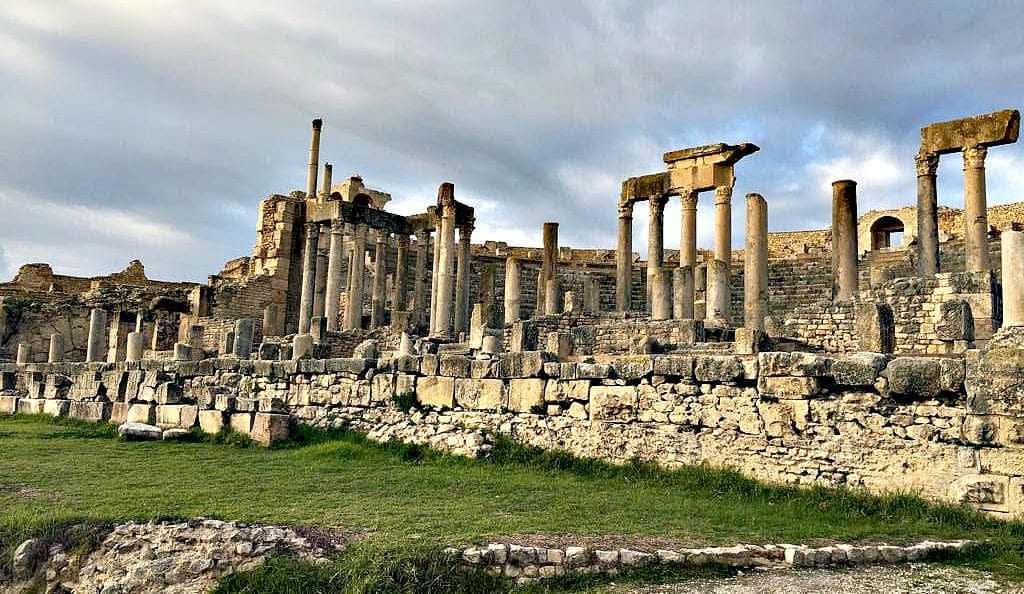
Fitouri’s farm contains an archaeological site with UNESCO World Heritage status
“For us, olive oil is in our DNA,” said Fitouri. “We have a relationship of 3,000 years with this tree and with this fruit. Most families in Tunisia own their own trees, passed down through generations, so most people get oil from their own production, alone or pooled with their neighbors. It’s collected directly from the mill every year after the harvest, enough to last until the next harvest. We use it in everything, and maybe we take it for granted. Olive oil is extremely central to the diet and overall personal care. Tunisians use olive oil for every meal, and a typical breakfast, for example, is made up of bread and olive oil, maybe with honey on top — and of course we also use it cosmetically, for the care of skin and hair.”
A family business, Olivko has been producing olives since 1928. Though the latest harvest season was not as plentiful as the previous year, Fitouri was glad they could make up for this with a high-quality oil. “A great season is always followed by a tough season,” he explained. “That is the way our trees behave, very up and down, all this Mediterranean temperament I guess. Last season the trees were not very generous with quantity, but they were generous with quality. We paid attention to details to get the most out of the crop, and were glad to see that recognized by the award.”
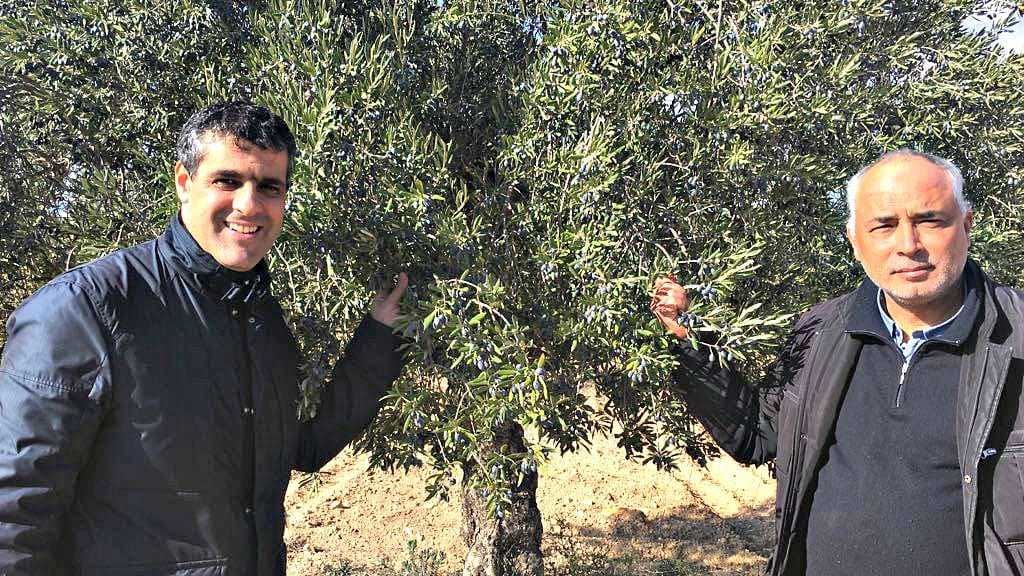
Fitouri with Hichem Gassab
For Fitouri, the win represents not only an important mark of recognition for Olivko, but also the beginning of Tunisia’s transformation from a bulk producer for the export market to a country known for its high-quality olive oil. He blames difficult economic times and the political upheaval of recent years for the reason some producers “got greedy and lazy and were selling their oil in bulk to Italy to be bottled there for dumping prices, hidden under Italian brands.”
But he is sure of Tunisia’s potential: “We have 80 million trees, a young and dynamic workforce, and an active diaspora. But we need to be daring, take chances and go out there with our name and our brands and be proud to be selling our oil openly as a Tunisian product, a product of high quality.”
During the 2014/2015 crop year, Tunisia had an exceptional olive harvest, producing a record 340,000 tons of olive oil, which put it in second place after Spain. It also became the world’s largest exporter, with 304,000 tons exported that year. According to International Olive Council (IOC) figures, Tunisia is currently the world’s third-largest olive oil exporter and fourth largest producer. Tunisia’s Office National de l’Huile (National Oil Office) lists the largest customers for Tunisian olive oil: Italy, Spain, the United States, France, and Morocco. Tunisia also exports refined olive oil to 39 countries.
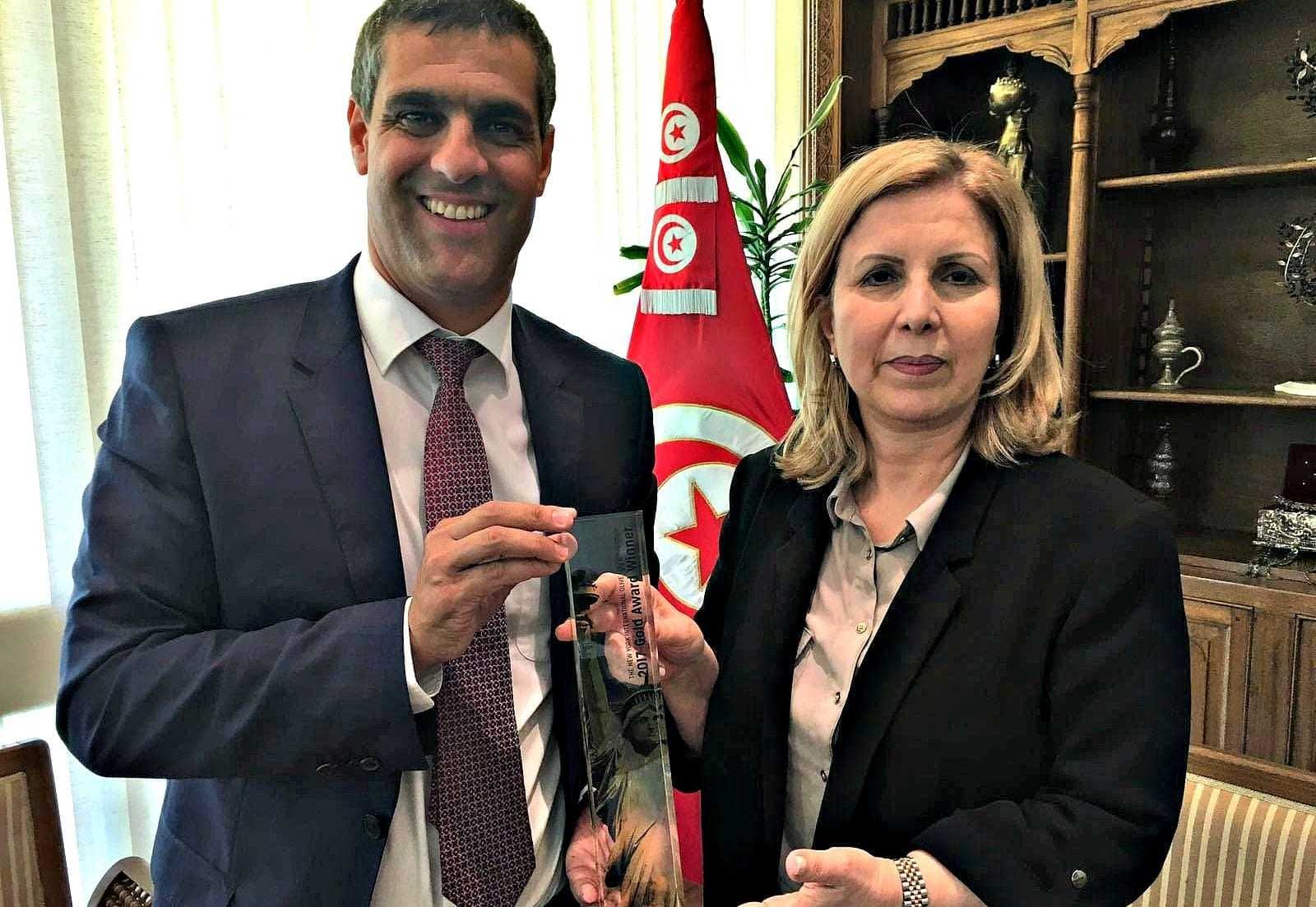
Tunisian Tourism Minister Salma Elloumi Rekik thanks Karim Fitouri of Olivko for his achievement in winning the Gold Award at NYIOOC 2017
Fitouri believes that the time has come for Tunisian producers to focus on quality and not quantity to finally get the recognition it deserves. When asked what needs to change for Tunisian producers to achieve this, he evoked the need for more education and investment.

Olivko
“Unfortunately a lot of producers are not up to speed on the latest technological advances,” he pointed out, “so they need to be educated to reduce waste and quality lapses. And they need to be educated to be proud of this crop and to sell it under their own name and the Tunisian flag, instead of in bulk to Italy to bottle. To be able to do that, there needs to be an investment in infrastructure for the production, so even small producers are able to harvest and bottle and export their oil on a level playing field with other countries.”
“And after that, of course,” he added, “we need support in marketing and selling the product because quality can only be sustained if the effort is successful and there is money coming in. So in my case, for example, a small producer who just won a prestigious award for the quality of his product, I need support from the state bodies to reach retailers and new markets that will open up to my product first, which will of course also pave the way for other Tunisian producers.”
Following Olivko’s achievement in New York, Fitouri has been invited to a slew of congratulatory meetings with Tunisian officials in London, Brussels, and Madrid before heading to Tunisia for media interviews. He has also been given a vote of thanks in the form of a personal award from the Tunisian government in appreciation of his success and for putting Tunisian olive oil on the world map of quality producers. Next up are meetings in Russia and Australia, before Fitouri heads back to New York for the Fancy Food Show later this week.
After spending 24 years living in the U.K., Fitouri is happy to return to Tunisia carrying the coveted NYIOOC award and optimism for the future of the country’s olive oil industry. “I came back to Tunisia to lead the people in the olive oil industry to make perfect olive oil juice and change the Tunisian image forever. We are making history here at the moment and I see this award as a historic moment for our company and for the Tunisian olive oil industry.”
“But it’s only the beginning, and we need to keep the momentum. Tunisian oil can compete in the international arena and stand proudly on the podium with world class oils from powerhouses like Spain and Italy but we need to keep working hard, talking about quality, breaking down people’s misconceptions, getting them to try it,” said Fitouri.
“So to any retailers and suppliers worldwide reading this on Olive Oil Times — write to me and ask for a sample of Olivko, or invite me over to your country to do a demonstration. Open your mind and allow this product that we made with so much care to transport you to the Dougga valley under the Tunisian sun. Give us a chance, we will surprise and amaze you.”




